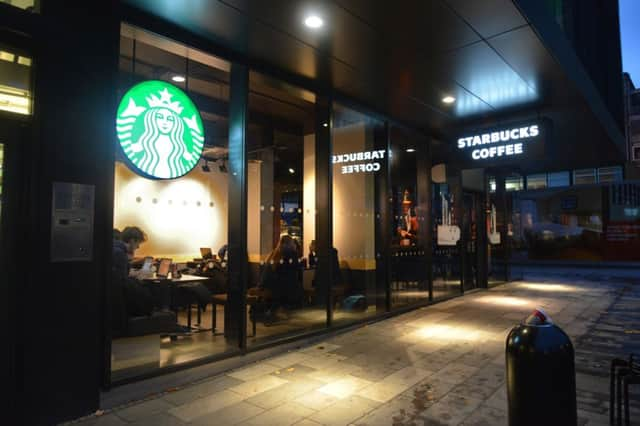Jane Bradley: Business size shouldn’t matter


The suggestion he gives for an acceptable company in which to place his hard-earned cash is Starbucks, a (in Number Two’s own words) small, Seattle-based coffee company.
The chain’s appearance in the film sparked much interest in the local area. It was 1999.
Advertisement
Hide AdAdvertisement
Hide Ad“Starbucks spokesman Chris Gimbl says the company is being approached more and more by television and film producers,” a journalist from the Seattle Times wrote excitedly.
At that time, everyone was rooting for Starbucks. The company, which started life as an independent coffee chain, then had just 2,000 stores worldwide. It was a local firm made good.
But the headline accompanying the article was prophetic: ‘Starbucks Teams With Dr Evil – Bent On World Domination?’ the savvy sub editor wrote. Oh, how ironic.
Fifteen years later, the brand has more than 21,000 stores in over 65 countries. It is a huge success. And, as a result, everyone has turned against it, feeling forced to make excuses if toting a takeaway cup bearing the green and white logo.
“Oh, Local Cafe X had SUCH a long queue this morning, I was forced to go to Starbucks,” you hear people muttering embarrassedly as they arrive at the office clutching a flat white.
CONNECT WITH THE SCOTSMAN
• Subscribe to our daily newsletter (requires registration) and get the latest news, sport and business headlines delivered to your inbox every morning
It is not alone. It seems that any company which has achieved a perceived Dr Evil-esque aim of world domination is detested. And now it is the supermarkets which are being ousted in favour of supposedly more cuddly discount retailers such as Aldi and Lidl.
The large chains, consumers say, are nasty. They have too many stores. They have sold out. They want to – shock – get you to BUY things from them. In the mind of the consumer, Tesco is a giant, green, wart-ridden monster, with a large mouth and pointy teeth, which shares a dark cave with skinny, sneaky little troll, Amazon and grinning, fake-cheerful evil dwarf Starbucks – both of whom will steal your wallet as soon as look at you, given half a chance.
Advertisement
Hide AdAdvertisement
Hide AdIn the case of the latter two, both based in the United States, what’s not in doubt is that their history of minuscule corporation tax payments in the UK hasn’t helped their popularity one bit.
Sainsbury’s came under attack recently when a poster intended for the staffroom of a store in Stratford, East London, was erroneously put up in a public area. It encouraged members of staff to try to get each customer to spend 50p more than they intended on each visit. The public was shocked. But is it really a surprise that Sainsbury’s wants us to spend money? And is it really that bad?
And are the newly popular alternatives that much better?
People have rejoiced when it turned out that German supermarket chains Aldi and Lidl are causing major economic headaches for Tesco, Sainsbury’s and their Big Four rivals Morrisons and Asda. But what no-one quite seems to get is, firstly, that these discount chains are already big. Just perhaps not here. Secondly, they plan to get even bigger.
This week, Aldi announced it would create 35,000 jobs, UK-wide. This detail came just weeks after it revealed plans to grow its stable to around 1,000 over the next few years. Indeed, Aldi is already about the same size as Morrisons in the UK. Who knew? In its home market, it already has over 4,000 shops – more than Tesco has here. Its model – not particularly fancy shops, putting cost pressure on its (predominantly European) suppliers – keeps prices low, which is a boon for the cash-strapped consumer.
I am a great fan of Aldi and Lidl. I really am. But I can’t help wonder how long it will be before the consumer’s love affair with the discount supermarket concept reaches tipping point as they grow. Will it be at 700 shops? 800? Or will they hold out to 1,000?
What is the critical mass? As the Seattle-ites found, if you successfully support your local businesses, they will, if they do well, get bigger.
And while businesses with any number of stores should be held to account – to act ethically; responsibly and give the customer a good deal – size really shouldn’t matter. But it does.
SCOTSMAN TABLET AND IPHONE APPS